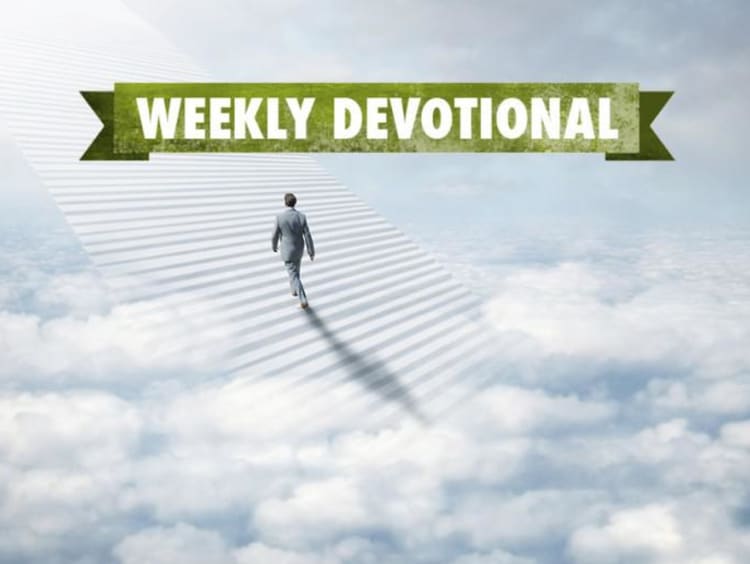Weekly Devotional: This Life and the Afterlife
By Chris Cunningham
Local Outreach Coordinator

Are ghosts real?
Hmmm.
If they aren’t real, how do you explain what happens on my favorite TV show, “Ghost Adventures”?
Actually, I think this is an interesting question that requires a more lengthy response.
When we read the Bible, we don’t find too many mentions of ghosts (at least not the kind in “Ghost Adventures”), except in 1 Samuel 28, when we’re given the odd story of Saul and the medium in the city of Endor (cue “Tubular Bells”).
At this point, Saul has basically shown himself to be a paper king perched on top of a throne of lies. He’s disobeyed God, lied to the nation and repeatedly tried to have David (the people’s champ) murdered. Israel is essentially waiting for Saul to die so that David can take the throne.
With the Philistines (Israel’s archenemy) gathered and waiting to destroy Israel, Saul sneaks off to summon a medium so that he can consult about how to defeat the assembled army outside the camp.
Saul finds one of the last mediums left in the land and basically tells her, “I’m pretty depressed because no one likes me, and I have no idea how I’m going to get myself out of this hole with the Philistines. Can you call up my dead friend Samuel? He was a prophet, and this is more his thing. He’ll know what to do.”
The medium then summons the prophet Samuel who, upon being summoned, essentially responds:
“Who dares to disturb me?!”
From here, Saul asks Samuel for advice on how to defeat the Philistines. And Samuel, ever positive and cheerful, basically replies, “Why are you asking me this? God already spoke to you through me when I lived. God is your enemy, and he’s going to let you die by the hand of the Philistines. Good luck with that. Have a nice life—or at least what you have left of it.”
I won’t tell you how this story ends, but I will point out a few observations:
- These passages clearly assume that the audience understands that there is some type of afterlife.
- The author of 1 Samuel records the abundance of mediums that existed at the time of the book’s writing (28:3). He also records that most of the mediums were banished from the land. We can guess that people were overly interested in the mediums and became sidetracked from their main duties.
- When Samuel was summoned by the medium, he mentioned that this summoning had “disturbed” something (28:16). Does this mean that summoning the spirits of the deceased is unnatural or damaging?
- Samuel seemed to know what was coming in the future when Saul asked him about the Philistines (28:18-19).
We live in a culture that is fascinated with ghost stories, the occult and the supernatural, yet strangely, recent reports say that one in five Americans now identify as having no belief in an afterlife and/or don’t take part in any spiritual practice.
Personally, I love scary movies, but have noticed a tendency among friends to write off the spiritual side of everyday existence while searching tirelessly for ghosts and undead spirits. It seems like mainstream media has peaked our interest in demons, spirits and paranormal activity, giving us the implicit message that these things commonly occur.
The danger here is that we stop seeing life itself as spiritual. The universe is made up of 93% dark matter, a substance that is (at this point) entirely unknowable. How’s that for paranormal?!
All this to say: Ghosts could exist. For many of us, the idea of ghosts gives us comfort that deceased loved ones are still alive in some way.
Here’s the thing to hold onto though:
You’re still alive.
Your life matters.
Mourning the death of a friend or relative is totally natural. Asking questions about the afterlife is healthy and good.
But we shouldn’t get so obsessed with the afterlife and the existence of another spiritual realm that we forget to exist and to truly live here and now in this world.
To read more about ghosts and what the Bible says about them, check out this week’s Trending Faith.
The views and opinions expressed in this article are those of the author’s and do not necessarily reflect the official policy or position of Grand Canyon University. Any sources cited were accurate as of the publish date.


